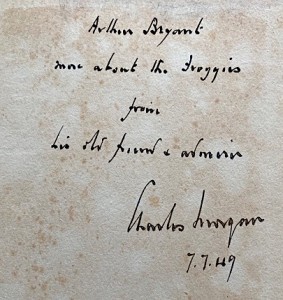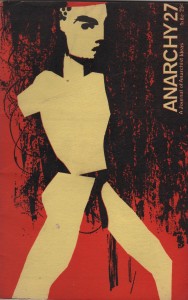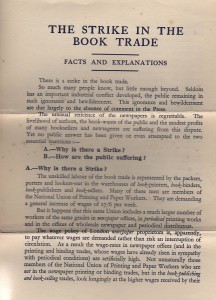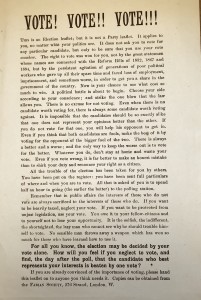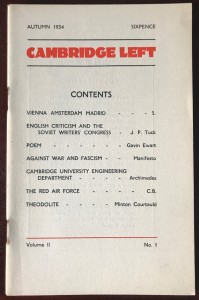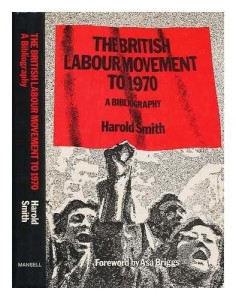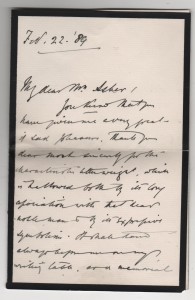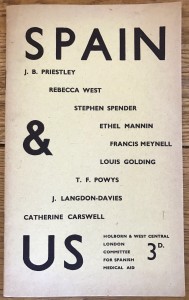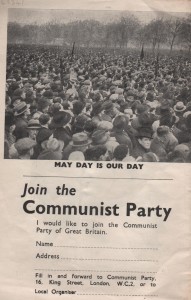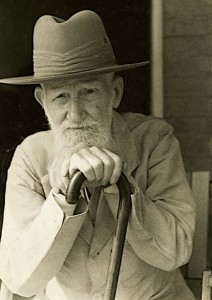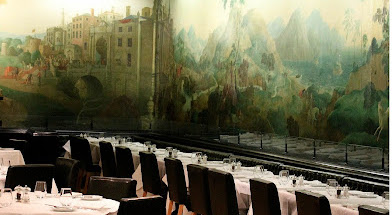
In 1956, over sixty years before the Tate Gallery ethics committee decided to close it over criticisms of its ‘racist’ mural, Fanny and Johnny Cradock paid a visit to the famous Rex Whistler Room restaurant in the Tate Gallery. They were there to sample the menu brought in by its new owner, a Mrs Adams, to replace ‘railway sandwiches, canteen tea and dish-water soups ‘. In place of these the visitors found:
‘ palatable soups (9d), respectably-fried fillets of Dover Sole and properly-cooked chips (3s 9d) , adding for good measure grilled trout and turbot for 4s 6d, chicken, ham and mushroom vol-au-vent garni for 6s, and a nice homely plate of braised beef and vegetables for 4s 9d. Fresh fruit salad with ice-cream and cream costs only 1s 9d. Chef makes a tour of the restaurant daily to ensure all is well with his clients.’
Rather bizarrely, no mention is made by Fanny and Johnny of the astonishing mural, ‘ ‘An Expedition in Pursuit of Rare Meats ‘ by the twenty-one year old wunderkind of British decorative art, Rex Whistler, which by now had been there for thirty years, possibly because the couple were there to discuss food, and anyway most cultivated diners-out in the metropolis would already have been aware of the art work. Fast-forward to 2020, when the restaurant was last open to the public. The mural was still there, but in place of fish and chips diners with large pockets could expect to find very fine dining indeed and a reputable wine cellar commensurate with a gallery containing the greatest of British art.
But all was to change following an online post by an activist group calling itself ‘ White Pube’. This called attention to the imagery employed by Whistler, which included stereotypes of Chinese people and, worst of all, the figure of an enslaved black child being kidnapped by traders, hauled along by a rope in front of its distressed mother. According to the post, the notion of dining in the presence of imagery that represented the worst examples of the racism inherent in colonial power was an affront to present day values of equality and diversity. The online response elicited by this attack strongly suggested to the Tate trustees that the issue required immediate action and so a committee containing the great and the good was formed to debate the issue.
Continue reading



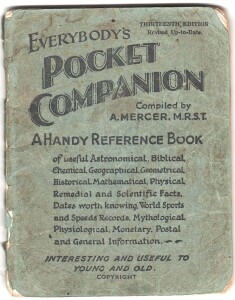


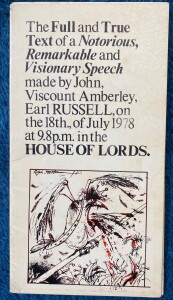 Open Head Press about 1980 at 50p. It came from the estate of the Dutch radical Simon Vinkenoog whose birthday (18th July) was the same day as this revolutionary (not to say crazy) speech was given. It has the full text of Earl Russell’s 1978 maiden speech to the House of Lords.
Open Head Press about 1980 at 50p. It came from the estate of the Dutch radical Simon Vinkenoog whose birthday (18th July) was the same day as this revolutionary (not to say crazy) speech was given. It has the full text of Earl Russell’s 1978 maiden speech to the House of Lords. 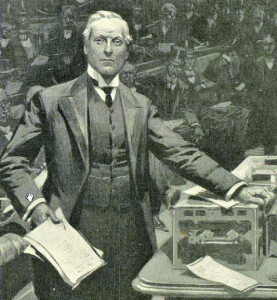 Found among papers at Jot HQ is this carbon copy of an anonymous typescript article on the Liberal Prime Minister H. Herbert Asquith (1852—1928). The author—evidently a Liberal supporter and a great fan of Asquith—reveals various tantalising clues as to his identity, but remains a mystery, despite intensive online research by your constant Jotter.
Found among papers at Jot HQ is this carbon copy of an anonymous typescript article on the Liberal Prime Minister H. Herbert Asquith (1852—1928). The author—evidently a Liberal supporter and a great fan of Asquith—reveals various tantalising clues as to his identity, but remains a mystery, despite intensive online research by your constant Jotter.